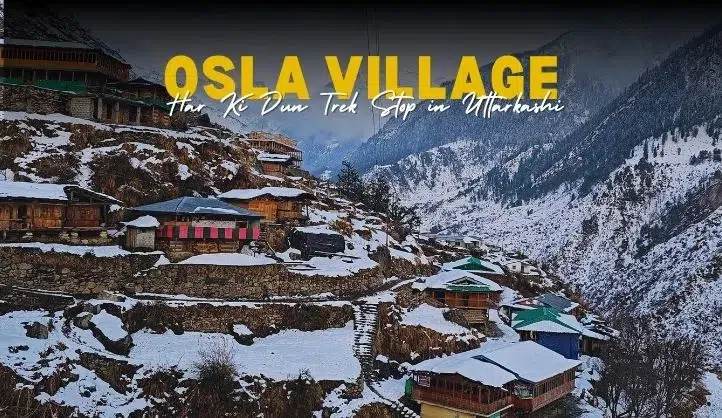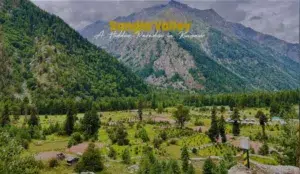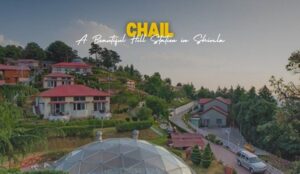Have you ever dreamed of walking through a fairy tale-like Himalayan village where wooden houses cling to terraced hillsides, rivers hum in the background, and snow-capped peaks frame the sky? Welcome to Osla Village—one of Uttarakhand’s most peaceful and untouched gems.
While most travellers know about the Har Ki Dun Trek, few take time to explore Osla itself—a mistake you shouldn’t make.
In this blog, you’ll get a full guide to Osla village—its culture, how to reach, best time to visit, things to do, and travel tips—all crafted with powerful SEO strategies so you find everything in one place.
Where is Osla Village Located?
Osla Village is located in the Govind Pashu Vihar National Park in the Uttarkashi district of Uttarakhand, India. It sits at an altitude of around 2,590 meters (8,500 ft) above sea level.
Nestled on the route to Har Ki Dun Valley, Osla is accessible only by trekking. It’s one of the last few traditional Himalayan villages that still preserve their architecture, language, and customs.
📌 Nearest Road Head: Sankri (13 km trek to Osla)
🛤️ Trek Distance: 13–14 km from Sankri
📅 Ideal Duration to Stay: 1–2 days (before or after Har Ki Dun trek)
How to Reach Osla Village?
Getting to Osla involves multiple steps, but it is totally worth the effort.
Step 1: Reach Dehradun
Dehradun is the nearest major city with good connectivity. You can reach Dehradun by:
-
Flight: Jolly Grant Airport (24 km from city center)
-
Train: Regular trains from Delhi, Haridwar, etc.
-
Bus: Overnight Volvo or state buses from Delhi
Step 2: Drive from Dehradun to Sankri
From Dehradun, you must travel about 200 km to Sankri, which takes 8–10 hours by road. Options:
-
Shared taxis from Dehradun Railway Station
-
Private cab or hired jeep
-
Tour operators running fixed departure groups
Step 3: Trek from Sankri to Osla
The trek from Sankri to Osla is about 13 km and takes around 5–6 hours. The trail passes through Taluka, dense pine forests, and wooden bridges.
The Lifestyle and Culture of Osla Village
Osla is home to the Garhwali people, and their life is simple, spiritual, and in tune with nature.
Duryodhana Temple: The Heart of the Village
One of the most unique aspects of Osla is the temple dedicated to Duryodhana, a character from the Mahabharata who is rarely worshipped elsewhere. This temple is made of ancient wooden carvings and reflects beautiful architecture.
Locals believe Pandavas visited this region during their exile. Folklore and stories are passed from generation to generation.
Traditional Lifestyle
-
Women wear colourful woollen dresses
-
Homes are built with wooden logs and slate roofs
-
Agriculture and animal herding are the main occupations
-
Hospitality is part of the local DNA—people are warm and welcoming
Things to Do in and Around Osla Village
1. Experience Local Homestays
Stay in a traditional Garhwali home and enjoy local food like mandua roti, bhatt ki dal, and ghee-soaked parathas. It gives an authentic taste of mountain hospitality.
2. Visit the Duryodhana Temple
This wooden temple is a must-visit. Ask the locals about its legends and stories—it adds meaning to the visuals.
3. Photography and Stargazing
Osla offers picture-perfect backdrops at every step. The night sky here is crystal clear—ideal for stargazing and night photography.
4. Interact with the Villagers
Talk to the locals. Learn about their festivals, farming techniques, and daily life. It’s the kind of cultural exchange that leaves a lasting memory.
Popular Treks from Osla Village
1. Har Ki Dun Trek
-
Distance: ~25 km from Osla
-
Duration: 2 days from Osla (to and fro)
-
Altitude: 3,566 meters
This is one of the most famous treks in the region and Osla is the last inhabited village on this route.
2. Ruinsara Tal Trek
-
Distance: ~20 km from Osla
-
A peaceful glacial lake surrounded by alpine meadows. It’s less crowded and full of pristine beauty.
3. Bali Pass Trek
-
A challenging trek for seasoned hikers, crossing altitudes of over 4,900 meters. Not for beginners but very rewarding.
Where to Stay in Osla Village
There are no hotels or resorts in Osla. But you’ll find:
-
Local homestays run by villagers
-
Basic guesthouses with bedding and meals
-
Camping grounds (own tents or guided tours)
Pro Tip: Book in advance during trekking season (April–June & Sept–Nov) or come with a local guide who can help you find a stay.
What to Pack for the Osla Village Trek
✅ Good-quality trekking shoes
✅ Woollen clothes (it gets cold at night, even in summer)
✅ Raincoat (monsoon surprises)
✅ Torch, water bottle, dry fruits
✅ Power bank (limited electricity in the village)
✅ Personal medicine kit
✅ Cash (no ATMs)
Best Time to Visit Osla Village
Osla Village is a Himalayan destination, and the weather changes a lot with the seasons. To truly enjoy your trip, you should visit at the right time of year.
Here’s a complete seasonal breakdown:
Spring and Summer (April to June) – Best Time for Trekking
-
Temperature: 10°C to 20°C
-
Why Go: This is the most popular time to visit Osla. The snow starts melting, the weather becomes pleasant, and wildflowers begin to bloom along the trail.
-
Trail Conditions: Clear and dry, ideal for trekking and camping.
-
Highlights: Green meadows, blooming rhododendrons, and clear views of Himalayan peaks.
Best for Har Ki Dun Trek, photography, and village exploration.
Monsoon (July to August) – Not Recommended
-
Temperature: 12°C to 18°C
-
Why Avoid: Osla experiences heavy rainfall during the monsoon. The trek route becomes slippery and risky due to landslides and muddy trails.
-
Trail Conditions: Very wet, leech-prone, and frequent route blocks.
Only attempt if you’re an experienced trekker and travelling with a local guide.
Autumn (September to November) – Second Best Season
-
Temperature: 5°C to 15°C
-
Why Go: The landscape turns golden, and the skies are very clear. Post-monsoon freshness makes everything look extra beautiful.
-
Trail Conditions: Stable and dry; fewer crowds than summer.
Perfect for peaceful trekking, stargazing, and cultural immersion.
Winter (December to March) – For Snow Lovers Only
-
Temperature: Drops to -10°C
-
Why Go: The village gets covered in snow, and everything turns into a winter wonderland.
-
Trail Conditions: Harsh, with snow-covered paths. Most homestays close down.
Trekking becomes extremely difficult and is not advisable for beginners. But for seasoned adventurers, it’s a magical challenge.
Summary Table:
| Season | Best For | Not Ideal For |
|---|---|---|
| April–June | Trekking, village stay, clear views | – |
| July–Aug | – | Landslides, muddy paths |
| Sept–Nov | Photography, peace, post-monsoon lushness | – |
| Dec–March | Snow lovers, adventure photographers | Trekking, general tourists |
Why Osla is Perfect for Eco-Tourism
-
No vehicles, no pollution
-
Organic farming techniques
-
Rainwater collection and minimal plastic use
-
Trekkers are encouraged to follow “Leave No Trace” practices
-
Local guides help generate employment
👉 Tip for Responsible Travellers: Carry back all your plastic, do not play loud music, and respect local traditions.
Places to Visit Near Osla Village
Although Osla is a remote Himalayan village, several beautiful and lesser-explored destinations lie within 50–100 km. These nearby places make your journey even more rewarding if you want to extend your travel experience beyond Osla.
Here’s a list of handpicked destinations you should consider visiting:
1. Sankri
-
Distance from Osla: 13 km (Trek)
-
What to Expect:
Sankri is the last motorable village before the trek to Osla begins. It’s a small, scenic village with wooden houses, cafes, and basic accommodations. Many popular treks, including Har Ki Dun, Kedarkantha, and Bali Pass, start from here. It’s the best place to acclimatise, meet fellow trekkers, and explore local markets before or after your trek.
2. Taluka
-
Distance from Osla Village: 7 km (Trek)
-
What to Expect:
Taluka is the first stop on the trekking route from Sankri to Osla. It has a Forest Rest House and a few traditional homes. The trail from Taluka to Osla passes through pine forests and river crossings, making it a scenic trek for nature lovers.
3. Har Ki Dun Valley
-
Distance from Osla: 12 km (Trek)
-
What to Expect:
Located at an altitude of 3,566 meters, Har Ki Dun is one of the most beautiful Himalayan valleys in India. Surrounded by snow-covered peaks, alpine meadows, and glaciers, this is a must-visit if you’re already in Osla. It’s perfect for photography, nature camping, and experiencing high-altitude tranquility.
4. Ruinsara Tal
-
Distance from Osla: Approx. 20 km (Trek)
-
What to Expect:
Ruinsara Tal is a high-altitude glacial lake located near Osla. The trail takes you through dense forests, meadows, and tribal villages. The lake is considered sacred and offers reflections of snow-capped mountains in its clear water. It’s less crowded and ideal for solitude seekers.
5. Mori
-
Distance from Osla: Around 60 km (by road from Sankri)
-
What to Expect:
Located on the banks of the Tons River, Mori is known for rafting, pine forests, and quiet riverside camping. It’s a great place to relax after a trek. You’ll also find a few cafes and budget guesthouses for a comfortable stay.
6. Purola
-
Distance from Osla: Around 70 km (by road from Sankri)
-
What to Expect:
Purola is a larger town with better connectivity, small markets, banks, and mobile networks. It acts as a transit hub for trekkers heading to Sankri and Osla. You can stop here for supplies or rest.
7. Jakhol Village
-
Distance from Osla Village: Around 50 km (via Sankri)
-
What to Expect:
Jakhol is a peaceful and lesser-known village surrounded by forests and agricultural fields. It’s also a starting point for the Dev Kyara Bugyal trek and gives you a deeper glimpse into the local Garhwali lifestyle.
8. Kedarkantha Base Camp
-
Distance from Osla Village (via Sankri): ~20 km trek
-
What to Expect:
Though Kedarkantha is a different trekking route, it starts from the same base—Sankri. If you’re staying longer in the region, consider trekking to Kedarkantha for its 360-degree views, snowy peaks, and famous winter trek experience.
9. Netwar
-
Distance from Osla: Around 85 km (by road from Sankri)
-
What to Expect:
Netwar is a historical village famous for the Pokhu Devta Temple. The architecture of the temple is ancient and fascinating. The Tons River also flows nearby, and the scenery is spectacular.
Conclusion – Why Osla Village Should Be on Your Bucket List
In a world that’s getting busier, faster, and noisier, Osla Village is a slow travel paradise. Here, you can disconnect to reconnect with nature, with yourself, and with timeless mountain culture.
Whether you are a trekker, a photographer, a spiritual seeker, or someone just looking for authentic Himalayan experiences, Osla will leave you humbled and refreshed.
🌟 So pack your bag, wear your boots, and get ready to explore a place where time still flows like the river—calm, pure, and full of life.
FAQs About Osla Village
1. Is Osla village safe for solo travellers?
Yes, Osla is safe. Locals are kind and honest. However, always inform someone about your trek plan.
2. Can I do a day trip to Osla Village?
It’s not recommended as the trek takes 5–6 hours. It’s better to stay overnight.
3. Is a guide necessary to reach Osla Village?
Not compulsory, but having a local guide enhances the experience and helps with navigation and staying.
4. Are there mobile networks in Osla?
Only BSNL works occasionally. Don’t rely on the internet or calls here.
5. What permits are required to visit Osla Village?
You need a forest entry permit from Govind National Park, available at Sankri or online.





